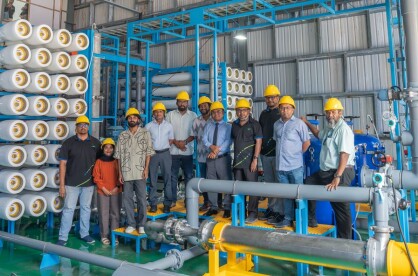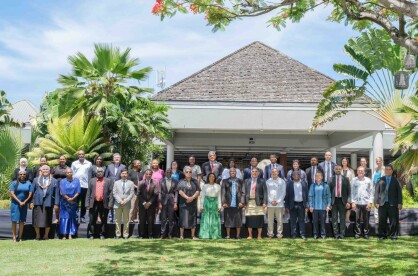The Maldives is currently leading a government-driven initiative to ban harmful substances, including tobacco, vapes, and related products. Recognizing the growing health issues associated with smoking, such as cancer and respiratory illnesses, the government has implemented measures to safeguard public health and the future of its youth.
In early November 2024, import duties on vapes were significantly increased, followed by a full ban on vape products and accessories starting November 15, 2024. Additionally, taxes and duties on traditional cigarettes were raised to discourage smoking.
This decisive action was urgently needed, as smoking and vaping had become commonplace, whether on the streets or in restaurants. By mid-December 2024, over a month after the measures were introduced, enforcement intensified. On December 18, police reported fining four individuals MVR 5,000 each for violating the new regulations.
The penalties for non-compliance are severe: using vape products results in a fine of MVR 5,000, while importing vape products carries a fine of MVR 50,000, with an additional MVR 10,000 for each device imported. Selling or distributing these products incurs fines ranging from MVR 10,000 per item to MVR 50,000 if sold to minors.
In addition to the fines that are imposed, the Ministry of Health has instructed the Maldives Customs Service to seize any such items, as outlined in a letter dated December 24, which has been widely shared on social media - which listed vapes and materials used in tobacco product manufacturing. Article 10 of the amended Act explicitly bans all forms of tobacco production in the Maldives, including the drying and preparation of tobacco leaves using air, sunlight, or fire.
The amendment also broadens the definition of tobacco products under Article 42 (f), categorising them as any products made using tobacco leaves, stems, or nicotine that are consumed through smoking, chewing, applying, or other means. However, exceptions have been made for products used in tobacco cessation or replacement therapy, as identified by technical authorities. In alignment with this, the Health Ministry has urged Customs to permit the duty-free import of nicotine gum shipments by the State Trading Organization (STO) to support cessation programs.
This goes hand in hand with the announcement that the Maldivian government has made regarding plans to establish cessation clinics nationwide as part of its broader initiative to combat smoking and vaping. These clinics will provide the support needed for those looking to quit smoking. Additionally, the clinics will distribute Nicotine Replacement Therapy (NRT) products, including nicotine patches and gum, which are proven to reduce withdrawal symptoms and increase the likelihood of quitting successfully.
By integrating cessation clinics into the healthcare system, the government aims to address the root cause of smoking addiction and reduce the prevalence of smoking in society. Combined with stricter enforcement and financial penalties for violations, the introduction of cessation clinics is expected to play a critical role in transforming the Maldives into a smoke-free society.






